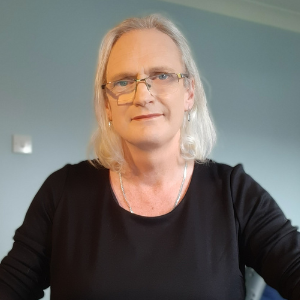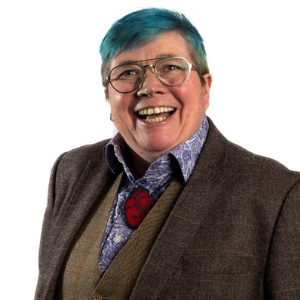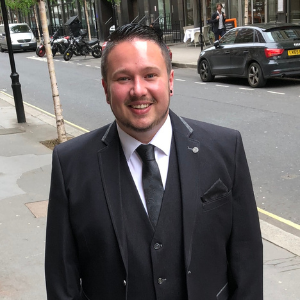
8 LGBTQ+ people describe the power of workplace inclusion
Lots of us spend most of our days at work. And, at least before the Covid-19 pandemic, that involved being in the same workplace, around the same people, every day.
Not being able to be authentic around colleagues can have a disastrous effect on LGBTQ+ people’s wellbeing and confidence. But we also know that when LGBTQ+ people can be themselves at work, they blossom.
Here, we share the real experiences of eight LGBTQ+ employees who are now able to bring their whole selves to work.
1. Great HR teams and procedures help employees inside and outside work

“I’d thought about talking to somebody for several years before I first came out to someone at work. Afterwards, the relief was immense – a weight lifted off my shoulders, and I felt I could breathe again. I’ve slowly come out to more colleagues, and I’ve recently come out to my peers and seniors. The reaction from everybody has been amazingly positive.
Since then, Jacobs have introduced a specific Trans HR rep. Jacobs’ action during lockdown, enabling and encouraging working from home was a huge help to me. Working from home over the last 18 months enabled me to find my true self, and find a balance that I’m happy with, allowing me to be me.”
Nic, Design Manager in Water and Environment at Jacobs Engineering Group
2. Healthier working cultures make for more confident employees

“I've never had any abuse directed at me, but there are times when I’ll be in a meeting a comment is made. I’m not ignorant to the fact that these mindsets are still the norm for some people, especially in construction.
But working in an inclusive workplace has definitely made me a little more confident in talking about my identity. I’ve also gained the confidence to talk to people I've connected with through the LGBT network. I know a lot of great people from a lot of different places in the business, that I wouldn't have met otherwise. That creates a good dynamic to be able to work in, where you feel like you can be yourself, as opposed to creating a facade at work.”
Ella, Consultancy and Project Management apprentice at Mace Group
3. Employees can discover and celebrate their authentic selves

“At a previous workplace, I witnessed homophobic and transphobic comments from a manager. I didn’t feel safe working there, and I anticipated that being out about my sexuality might hold me back from progression.
Shame cast a shadow over much of my younger teenage years right through to my mid-twenties. Working in inclusive environments has been massively important in helping me to unpick years of compounded shame. Today, I feel like I can say that I have a really clear idea of who I am and what I stand for. I thank all of the inclusive workplaces I’ve ever worked for playing their part in my journey of discovery towards my authentic self.
If you’re feeling isolated at work, talk to somebody. Anybody. Don’t suffer in silence. There will always be somebody who will want to listen, even if it might not always feel like it.”
Sean, Student Voice and Engagement at University of Salford and Co-Chair of Salford Proud
4. Championing LGBTQ+ inclusion from the top down dramatically changes employees’ experiences

I joined Grant Thornton in August 2016, fresh out of university. I’d only had the courage to come out to a couple of existing friends at that time.
When a conversation came up about relationships at a work social and I said I was bisexual, one of my colleagues told me he would ‘love to have a threesome’ with me and another girl. Another told me that I was making it up for attention and started asking intrusive questions about my sex life. I began to actively hide this fact about myself.
A few years later, in the wake of George Floyd’s murder, people in the firm became more aware of the challenges faced by minority groups, and sessions to discuss ethnicity, gender, sexuality and many other topics sprung up. Grant Thornton championing inclusion in the workplace has dramatically changed my day-to-day experience in the office. I no longer feel like I am filtering out an intrinsic part of who I am, and being able to be myself day-to-day at work gave me the courage to come out to my remaining friends and family.
Syndie Simons, Manager, Tax at Grant Thornton
5. Embedding LGBTQ+ inclusion transforms the entire culture of an organisation

“I joined the fire service 28 years ago, when it was very male dominated. I was told by my Area Manager at the time that I had two problems as far as he could see – that I was a woman and that I was gay. I thought that the best thing that I could do was to just hide bits of myself and not to share the biggest part of my life – my personal life outside of work.
Fire and rescue services are in a very different place today. The inclusive culture at Kent is a big positive. People are very welcoming; we have a much larger, more diverse workforce. The best thing for me is that I have a real opportunity to influence everybody's behaviours, how we recruit, and who we recruit. It isn’t all about being macho and having the biggest biceps in the world anymore. It's about how you treat and respect people.”
Mani, Area Manager at Kent Fire and Rescue Service
6. LGBTQ+ employees bring unique perspectives across your work

"I’ve had a really positive and seamless experience as a new LGBTQ+ parent at Macquarie. My wife and I adopted two older children at the beginning of lockdown and work was incredibly supportive, both my leaders and the work policies which were all gender-neutral and inclusive of adoption by same-sex couples. Life is much easier when you don’t have to worry about being treated differently.
I haven’t faced any barriers due to my identity as far as I’m aware. If anything, I think it's given me opportunities that maybe I otherwise wouldn't have. I am able to get involved in things like the Pride Network, which gives me access to talk to and have interactions with people that I otherwise wouldn't have met. My sexuality means that I can also see things through a different lens at times, and bring something different to the table."
Abby, Global Head of Finance for Macquarie Capital at Macquarie Group
7. LGBTQ+ inclusion means attracting and retaining excellent staff

“I’ve faced quite a bit of workplace bullying around my gender and sexuality, and it has caused a lot of ‘short-term employment’. When I started at ThoughtWorks, I didn't expect stuff to change much. But as well as talking the talk on diversity and inclusion, they also walked the walk!
About 18 months in, I was misgendered by a client and I just shut down. But my team turned around and asked, “Are you okay? How can we support you?” By the end of it, I was just a wreck and had a breakdown – because I’d never been supported before. I had to tear down all the defensiveness and aggression that I’d built up over the years as coping mechanisms, and rebuild brand new ways of being me.
ThoughtWorks were wonderfully supportive in helping me get it right. They constantly saw the work that I was putting in on myself, gave me feedback all the time about how things were improving – it’s led to me being so relaxed.”
Dr J Harrison, Principal Consultant at ThoughtWorks
8. Inclusive workplaces give hope to isolated LGBTQ+ people

“In the part of the world that I live in, it's still very traditional. It’s not the norm to see same-sex couples walking down the street holding hands. The experiences I had as a young guy finding my identity were very poor. I really felt like my life wouldn't go anywhere. So, the fact that I found an employer that values me for me has just allowed me to grow.
The best thing about working in an inclusive workplace is that I feel as though I'm treated as an individual, and that my identity, my sexuality, or my point of view, is celebrated. When I joined, I had a preconception that to be successful, you needed to be a white straight man. But that isn’t the case at Santander.”
Tom, Community hub director at Santander

